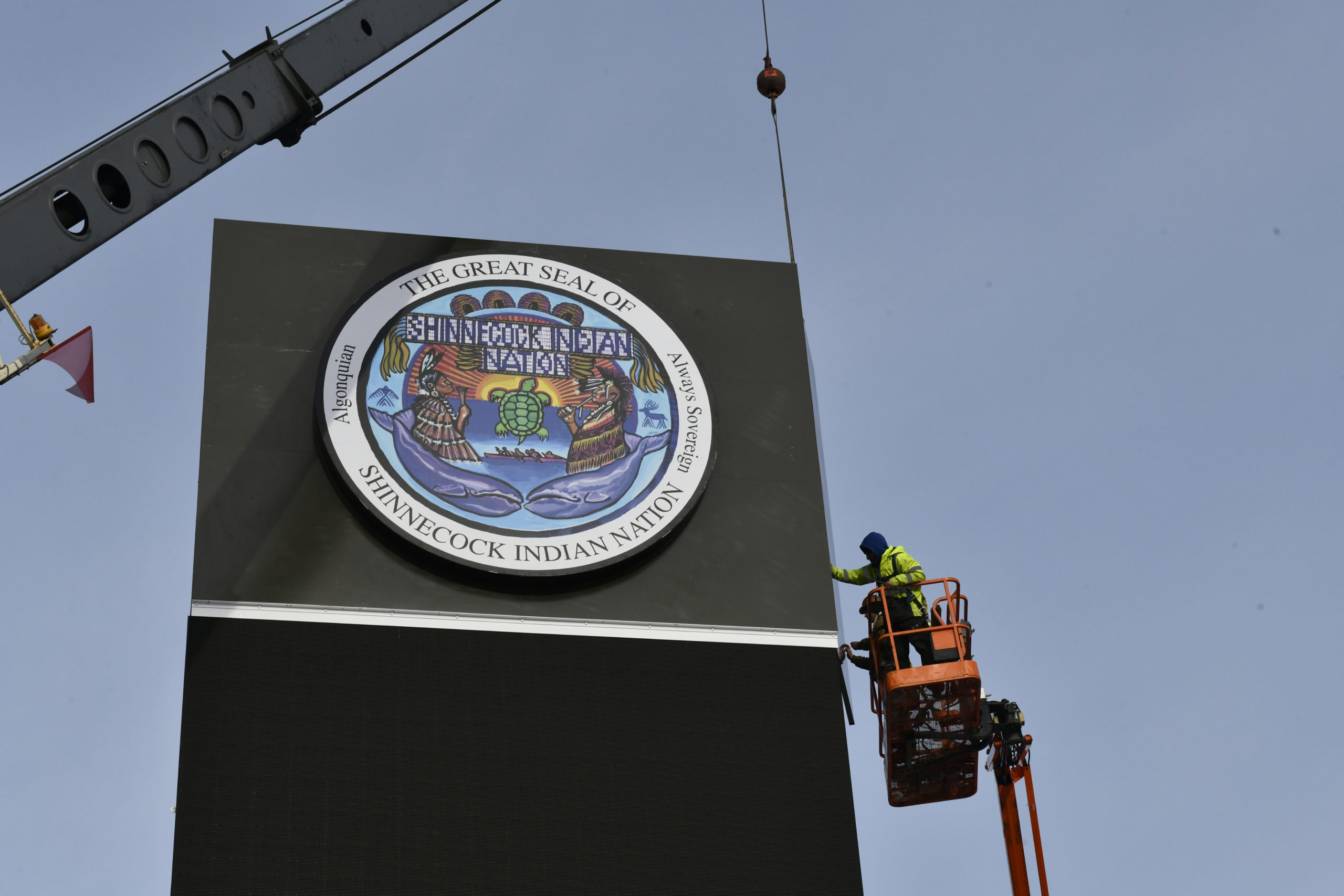
It was a little anticlimactic, Bryan Polite, the Shinnecock Nation’s tribal chairman, admitted last Thursday afternoon, February 11, as he and a handful of onlookers gathered on the westbound side of Route 27 to watch work crews put the finishing touches on the second of two digital billboards the tribe has erected on either side of the main thoroughfare to the East End.
There were no speeches, and no applause as the sign was illuminated at about 4 p.m. — in defiance of the New York State Department of Transportation, which had issued stop-work orders threatening the tribe with $1,000 daily fines if it proceeded with the work.
This week, Joseph Morrissey, a spokesman for the state Department of Transportation, said because the billboards are on the state’s right of way, they are “in direct violation of federal and state law.”
Furthermore, he said the signs pose a safety risk because no engineering work had been done and there are no barriers in place to prevent motorists from leaving the roadway and striking the signs.
“We will continue to pursue legal remedies, including the pending litigation, to protect New Yorkers’ health and safety,” he said.
The first panels to appear on the digital display were three underwritten by Pink Floyd co-founder Roger Waters, who has lent his name to the tribe’s efforts to beat back the state’s opposition to the signs that double as monuments informing travelers they are entering or leaving the Shinnecock Territory.
Bright green, blue, and red panels announce: “Welcome to the East End of Long Island,” “Join the Shinnecock Nation,” and “Love, Protect and Share This Land.”
Plans for a full-scale ceremony to mark the occasion had to be put on hold, Mr. Polite said, in part because two members of the tribe, Wayne Crippen and Eddie Gumbs, had died this week. “There is too much loss on our minds,” he said.
Nonetheless, he added, “It’s a good day for the Shinnecock Nation, a good day because of our resiliency.”
Mr. Polite said besides generating much needed revenue for the tribe, the monuments are educational because they inform motorists they are crossing over the Shinnecock Territory. “A lot of people don’t even know we exist,” he said.
Similarly, Mr. Polite said he welcomed Mr. Waters’s involvement because it helped raise the tribe’s profile. “The more people learn about our history, the more they learn about the injustices we face, the better,” he said. “Knowledge is important.”